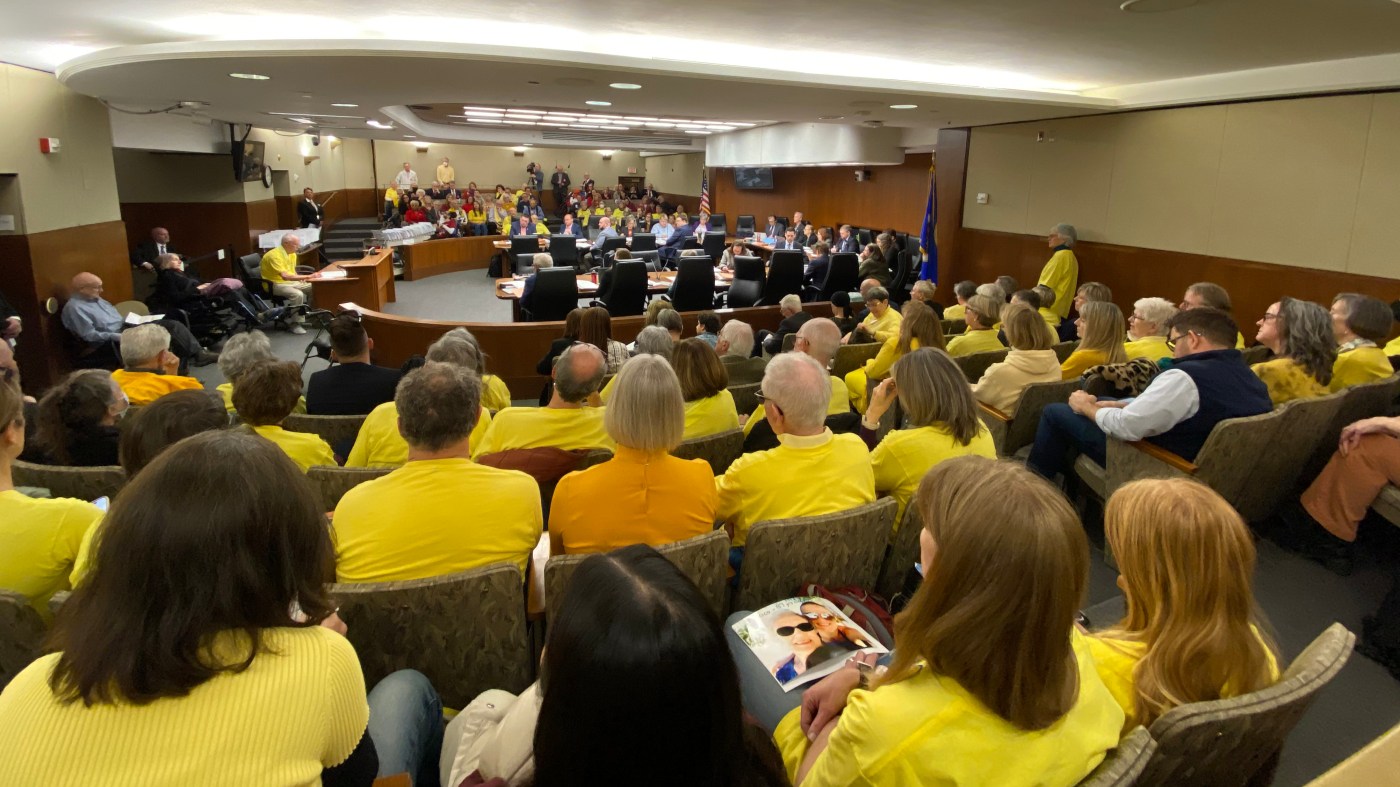
Minnesota House panel advances physician assisted-suicide bill
A debate in the Legislature over whether terminally ill adults in Minnesota can choose to end their own lives with the aid of a doctor kicked off in earnest Thursday at a packed state House hearing.
Hundreds of supporters and opponents of a physician-assisted suicide bill that’s expected to move forward in the Minnesota Legislature in the upcoming session filled a nearly 300-capacity hearing room for nearly five hours of public testimony and debate.
The “End of Life Options Act,” sponsored by Rep. Matt Freiberg, DFL-Golden Valley, is modeled on an existing Oregon law allowing adults with incurable and fatal illnesses to be prescribed medication to end their lives.
Freiberg first introduced a bill in 2015, and while he said he believes the issue isn’t partisan, its prospects improved after the 2022 election as Democratic-Farmer-Labor lawmakers kept control of the House and won a majority in the Senate.
Mike Freiberg, DFL-Golden Valley (Courtesy photo)
Backers of the bill, who included sufferers of terminal illnesses, their families, medical professionals as well as activists wearing yellow shirts made up the majority of attendees. They argued people with incurable diseases should not be forced to suffer over long periods only to await certain death. Advocates object to the use of the term “suicide” and instead prefer the term “aid in dying.”
Also present were a significant number of opponents, who included disability advocates and other medical professionals were also present, mostly wearing red.
The opponents raised concerns about the bill’s potential impact on the quality of end-of-life care as it would put the option of death within closer reach. Some also raised concerns that allowing terminally ill patients to choose death would eventually open the door for disabled people who are not terminal to choose an early death as well. Other concerns are that the bill does not have a state residency requirement and that people may end their lives so as to not be a burden on their families rather than to avoid pain.
Testimony Thursday
One testifier in favor of the bill was James Hamilton, who told the committee he was dying from extensive small-cell lung cancer and would likely not be alive within a year. He shared the story of losing his brother to the same incurable disease 15 years ago and said he does not want to experience the same prolonged death.
“Death need not be this ugly. Were the law to allow it, I would choose to end my life before this disease riddles my body and destroys my brain, as it did my brother’s,” said Hamilton, of St. Paul. “I ask that you spare me, and others like me, from this fate.”
Jean Swenson, a woman who became paralyzed from the neck down in a 1980 car crash, testified against the bill. She said months before she became disabled, she took a group to see a quadriplegic who had learned to paint by holding a paintbrush in her mouth. At the time she recalled telling the group she could never live that way.
After becoming paralyzed, Swenson said she struggled with depression and at times wanted to die, but is grateful death was not a choice because she got the care and help she needed to live a good life. She said she worries opening the door to physician-assisted suicide could change that for others in the future.
“This law currently applies only to people with terminal illness. However, guidelines and other places have expanded from terminal illness to include people with disabilities,” she said, later adding: “I respectfully ask that we pause and ask ourselves once we opened the door what will keep it from expanding?
What does the bill allow?
In the version adopted by the House Health Committee on Thursday, the “End of Life Options Act” would allow patients diagnosed with a terminal illness with six months or less to live to ask a doctor to help them end their life.
Patients would be required to have the mental capacity to make informed decisions about their own health care decisions, so people with dementia would not be eligible. People under guardianship or conservatorship would not be eligible, and advanced age or disability can’t be the sole reason for ending a life.
The patients would have to be able to administer their own medication, so injections and infusions would not be permitted.
Before a patient ends their life, they would have to get approval from two health care providers, one of whom would have to be a doctor. The other could be a nurse practitioner.
Health care providers would have to evaluate the patient and agree the patient meets the requirements and confirm they are making the choice on their own and not under coercion. The bill includes criminal penalties for coercion.
Providers would be required to inform the patient of end-of-life options including hospice care and symptom management. They’d have to explain all the risks and benefits and offer the patient the opportunity to take back the request at any time.
Both providers must document the request in the medical record and the person overseeing care must submit a request form signed by the patient and witnessed by a disinterested party.
Members of the House Health Committee voted Thursday evening on party lines, with all DFlers in favor and all Republicans against, to advance the bill to the House Public Safety Committee.
The 2024 legislative session starts Feb. 12.
Related Articles
Governor departed from normal background check procedure for cannabis director, audit finds
Committed to in-office work, Goff Public expands in downtown St. Paul
360 Communities closes Hastings crisis shelter, wants state’s help with Eagan expansion
St. Paul mayor, MN Wild seek $2 million for planning, pre-design of Xcel Center renovation
Letters: What will our new Professional Women’s Hockey League team be called?


